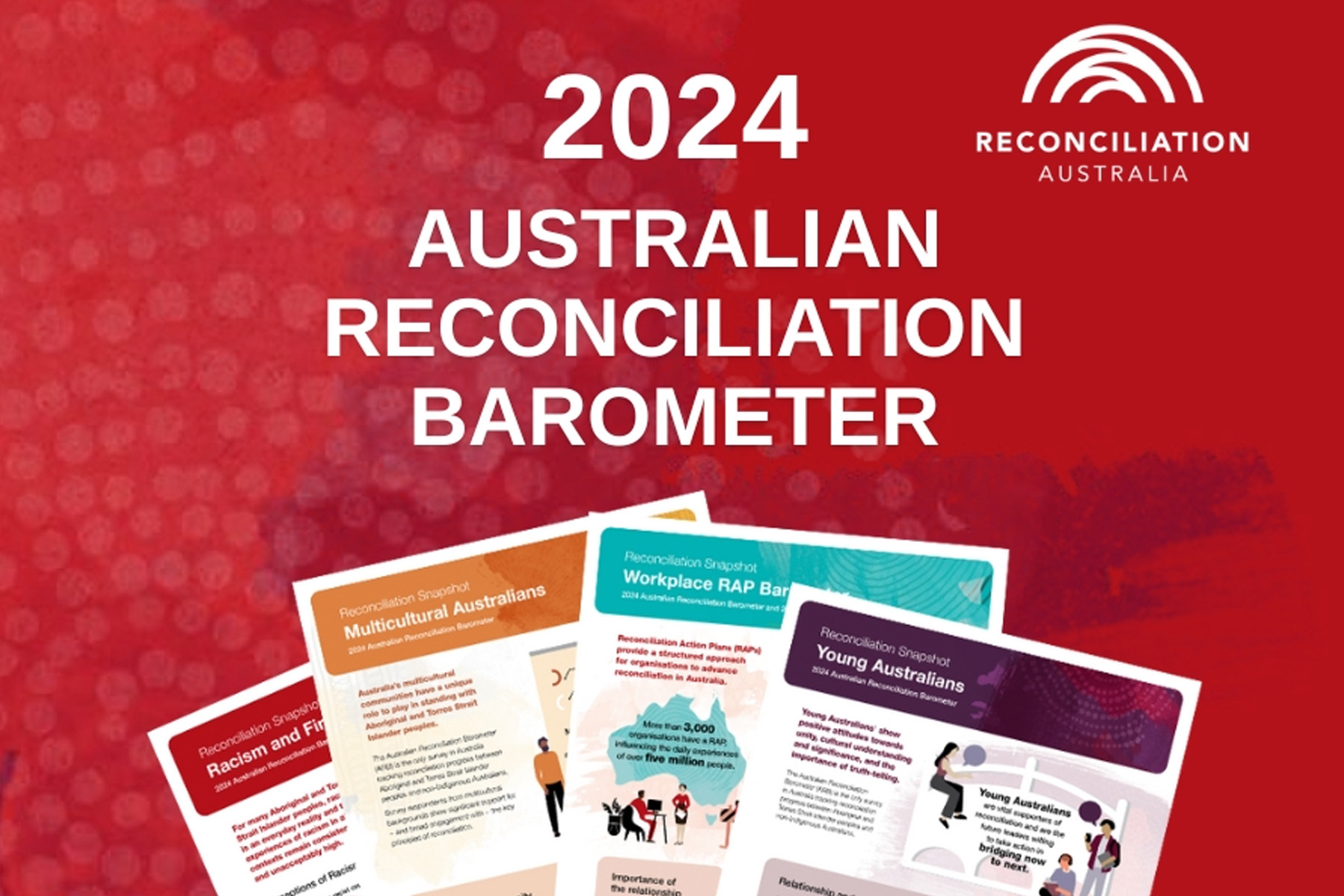
Reconciliation Australia’s latest survey
Published: 26 June 2025
85% of Australians surveyed in the 2024 Australian Reconciliation Barometer (ARB) believe the relationship between non-Indigenous and Aboriginal and Torres Strait Islander people is important.
The ARB is undertaken every two years to measure the attitudes and perceptions First Nations people and non-Indigenous Australians hold about each other and about key issues affecting Aboriginal and Torres Strait Islander people.
The 2024 survey was conducted almost a year after the Voice referendum campaign and at a time when Australians juggled cost-of-living pressures at home, while violent conflicts and extreme climate events wreaked havoc across the world.
Reconciliation Australia CEO, Karen Mundine, said she was encouraged by the latest ARB findings.
‘Despite the economic and global challenges and despite the disinformation and racism we witnessed during the referendum campaign, the 2024 ARB results show that most Australians share an enduring optimism in the possibility of a more united Australia and believe that the Federal Government should do more to advance reconciliation’, she said.
It gives us hope to report that Australians now largely accept the truths of our history, place importance on our relationships with each other, and are prepared to work together.
I am particularly heartened by this latest ARB data indicating growing support for reconciliation from two critical demographic groups: multicultural Australians and young Australians.
Karen Mundine said that while these responses were cause for optimism, the 2024 ARB worryingly indicated a rise in First Nations people experiencing racism since the 2022 ARB.
‘More than half of Aboriginal and Torres Strait Islander people surveyed reported experiencing racial discrimination in the past six months. Not only has there been rise in these experiences since 2022, but we have seen a significant increase in racism the last decade,’ she said (39% in 2014 to 54% in 2024).
‘Of particular concern is that younger Aboriginal and Torres Strait Islander peoples experience racism at higher levels than all other age groups, with 68% of First Nations people aged 25-34 years old experiencing at least one form of racial prejudice in the past six months.
‘This exposure to racism has meant that half of the First Nations people surveyed feel unable to be true to their cultural identity in their community, in their dealings with government departments and in the criminal justice system.
‘This is a shocking finding and adds weight to calls for governments to fully implement the National Anti-Racism Framework, as a key established mechanism to address systemic racism in Australia,’ she said.
Source
Reconciliation Australia
Media Release, 24 June 2025
Have a story to tell or news to share
Let us know by submitting a news story, an article, a review, a white paper and more …
Submit

